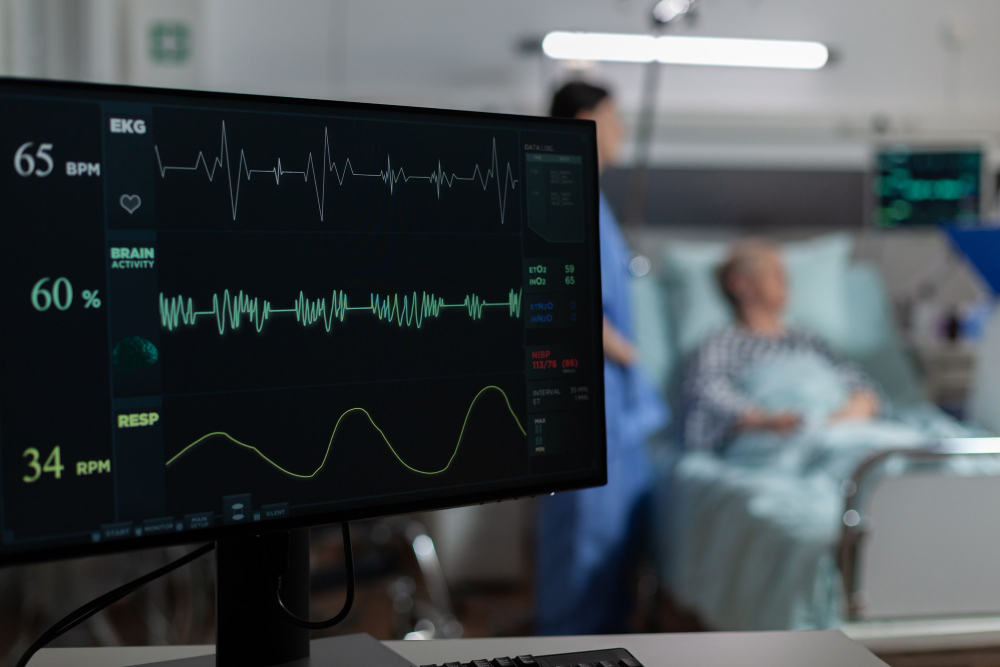Heart arrhythmia is a fancy way to say that your heart isn’t beating the way it should. It might be going too fast, too slow, or just not in rhythm. This can mess up your day-to-day activities and possibly your health. That’s why it’s super important to know what to watch for, so you can catch any problems early. If you catch the signs of arrhythmia early, you can get the right help and keep your heart ticking just right!
Heart arrhythmia happens when there are changes in the way electric impulses move through the heart. These changes tell the heart when to beat, so when they’re not in sync, it creates issues. Recognizing heart arrhythmia symptoms early can help you get medical care sooner, which can make a big difference in treatment. Keeping an eye on your heart’s health is a part of living well!
Key Symptoms and Early Detection
So, what should you look out for? Here are some of the main symptoms of abnormal heart rhythm:
- Palpitations: Feeling like your heart is pounding or racing, even when you’re just chilling on the couch.
- Dizziness: Feeling light-headed or like the room is spinning.
- Shortness of Breath: Having trouble catching your breath, even with little activity.
There are different types of arrhythmia signs, and they come with their own set of symptoms. Let’s break it down a bit:
- Atrial Fibrillation (AFib): Your heart might feel like it’s flopping around in your chest. It’s usually fast and irregular.
- Bradycardia: Here, the heart beats too slowly. This could make you feel tired or weak.
- Tachycardia: It’s the opposite of bradycardia. Your heart beats super fast, even when you’re resting.
Why is early detection important? Well, catching arrhythmia of the heart symptoms early can help your doctor find the root cause and start the right arrhythmia treatment. Regular check-ups can help track these symptoms, especially if they occur often. Noticing symptoms early can prevent complications down the road.
Genetic Factors and Seeking Medical Attention
Did you know some types of heart arrhythmia can run in families? Yes, if you have relatives with heart issues, you might be at risk too. It’s good to know your family’s health history because it can give clues about your own risk.
When should you see a doctor? If you experience arrhythmia heartbeat issues, like dizziness or shortness of breath, you might want to check in with a healthcare professional. It’s important to get medical advice if any arrhythmia signs are worrying you or they seem frequent.
Here’s how to prepare for a doctor’s visit:
- Record Symptoms: Keep a diary of when you feel symptoms.
- Note Triggers: Are there activities that make it worse, like exercise?
- Family History: Be ready to discuss any family heart issues.
Genetic screening can also be helpful. If heart arrhythmia runs in your family, screening might offer peace of mind and help catch problems early. You can talk to your doctor about testing if you are concerned. It’s all about being proactive and spreading awareness among family members to keep everyone informed!
Alternative Remedies and Myth-Busting
In places like India, traditional remedies are pretty popular. Things like herbal treatments and yoga are often suggested. But just how effective are they for managing arrhythmia heartbeat issues?
Some people find relief through traditional methods. They might help with relaxation, which can lower stress and indirectly help with mild symptoms. However, it’s crucial to compare these with modern medical arrhythmia treatment methods that are backed by scientific studies.
Sometimes people believe myths, like certain foods can cure arrhythmia signs, or that it’s not serious because it feels short or mild. Here’s the real deal:
- No single food can cure an arrhythmia.
- Not all natural remedies are safe; check with a doctor.
- Even mild symptoms can be serious, so never ignore them.
Experts say it’s best to combine safe traditional practices with modern treatments. Discussing options with a healthcare professional can provide a balanced view on managing heart health effectively. So, it’s important to know what works and what doesn’t.
It helps to stay informed, understand the symptoms, and know when to seek help. Keeping your heart healthy doesn’t have to be hard, and recognizing heart arrhythmia symptoms is a great first step!

